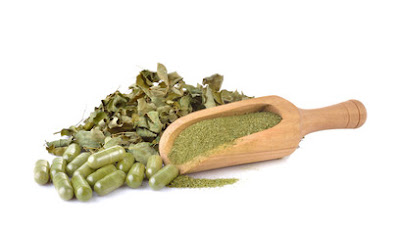Everybody has probably had of morning oleifera, it is a plant that has been known to have so many benefits to the health of humans. Many people in Nigeria have used the plant for many medical purposes and what to know what it can do for them. In this article we’ll briefly discuss, the health benefits, medical uses and side effects of moringa plant.
Health Benefits And Medical Uses Of Moringa
Moringa is a medicinal plant very popular among Asian peoples. It is widely available in Thailand due to the ability to survive during a drought. Moringa is a storehouse of protein and vitamin A. This is why the plant is recognized as an effective tool in the treatment of skin diseases by dermatologists.
ALSO READ: Healthy Nigerian Foods With Low Glycemic Index
Moringa has been widely said to be very beneficial for the skin
Glowing and beautiful skin is a business card of any person. Often, in order to achieve such a “wow” effect, one has to resort to complex external
care, internal use of drugs, and sometimes to surgical interventions. It’s hard to imagine that there is a plant in nature that can make the skin beautiful from the inside and out at the same time. However, for the people of Thailand, this is not a novelty: many women and men, take care of their face and body with the help of the moringa.
Furthermore, Moringa is rich in calcium, potassium and copper,
moringa is used in the treatment of all types of fungus.
In Thailand, moringa is used as a remedy for gout. However, it is important to clarify. Moringa itself is a tree from which, for medical and cosmetic
purposes, leaves, seeds, fruits, bark and roots are used. However, they
have different effects on the body. In particular, in the treatment of
gout, moringa capsules are used, which are made from the leaves of the
plant.
Nevertheless, moringa oil is quite toxic, and taking it inside with the same gout is contraindicated. Also, it is not recommended to ingest oil for pregnant women – this can provoke a miscarriage. The properties of this oil
are similar to olive oil and even have an advantage over the latter: with prolonged storage, it does not become bitter.
Plant seeds are even used for water purification. Thanks to the antiseptic properties, the water infused on the moringa is absolutely safe to use.
It is these antiseptic, antibacterial properties of moringa oil that
determine its effectiveness as an antifungal agent. However, it is necessary to remember that only the capsules made of leaves, are safe for
reception inside the body. When using the oil, however, it is worthwhile to be more careful.
Moringa is used as a dietary supplement to the usual diet in raw form or as a garnish. Headache, toothache and pain in the ear should be cured with a
compress of leaves. When suffering from a cold, it is recommended to take
plant seeds: they have the properties of a natural antibiotic and kill
disease-causing bacteria.
When treating the skin, Moringa is applied locally. To normalize digestion, the Moringa bark is used. To do this, you can prepare a tincture or chew a small amount of purified bark before each meal.
Moringa trees have been used to treat malnutrition among infants and nursing mothers.
Moringa capsules are used 2 times a day before breakfast and before bedtime
per 2-4 capsules at a time.
SEE ALSO: Nigerian Foods That Help You Gain Weight Fast
Properties of moringa:
– Antioxidant, helps in the fight against aging (capsules, oil)
– Moisturizes and softens the skin (oil)
– Strengthens immunity (capsules)
– Cancer protective (capsules)
– Protection from radiation (capsules)
– Improves blood circulation (capsules)
– Tones, increases endurance (capsules)
– Diuretic: removes edema, removes excess fluid (capsules)
– Antiparasitic (oil)
– Antifungal (oil)
– Antibacterial (capsules)
– Antiseptic (oil)
– Strengthens the bone system (capsules)
– It alleviates pain in the muscles, lower back, legs (massage with oil)
– Wound healing (capsules externally, oil)
– Detoxification (capsules)
– Cleans the body of toxins, heavy metals (capsules)
ALSO READ: Top 10 Medicinal Herbs And What They Treat
Side Effects Of Moringa
A slight increase in the dosage of the Moringa plant could cause genotoxic damage and may promote cancer growth. And consuming even higher doses, could cause liver and kidney damage. As stated earlier, it is contraindicated in pregnant women. Please note that, Moringa leaves should be used safely in doses of up to 6 grams (0.21 oz) daily for up to 3 weeks.
Moringa has already received recognition among the peoples of Asia, and thanks to its rich mineral and vitamin composition, it is becoming popular all over the world. To find out how this plant works, you need to test it
for yourself at least once. Your body and your skin will appreciate it!
References: https://healthybutsmart.com/moringa-oleifera-benefits/
Author Bio;
Melisa Marzett is a professional writer, who will inspire
your and show you that writing can be exciting and fascinating! Check for
here posts at http://getessayeditor.com/










